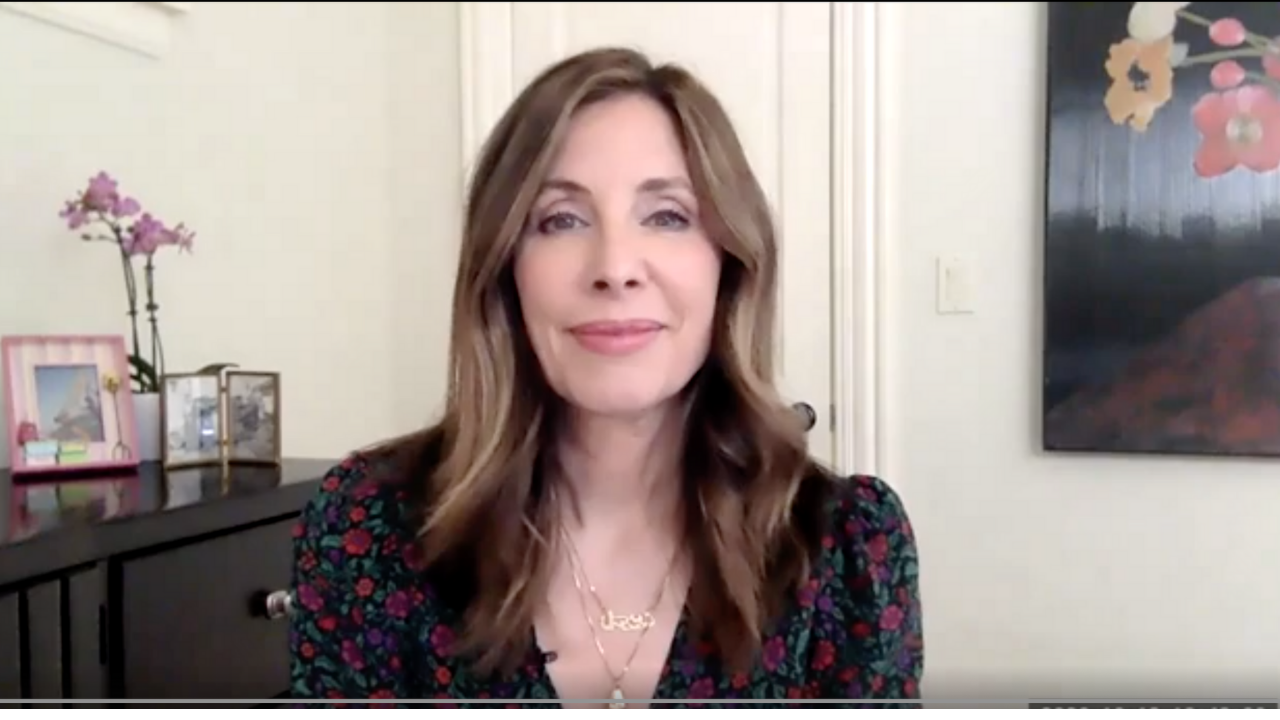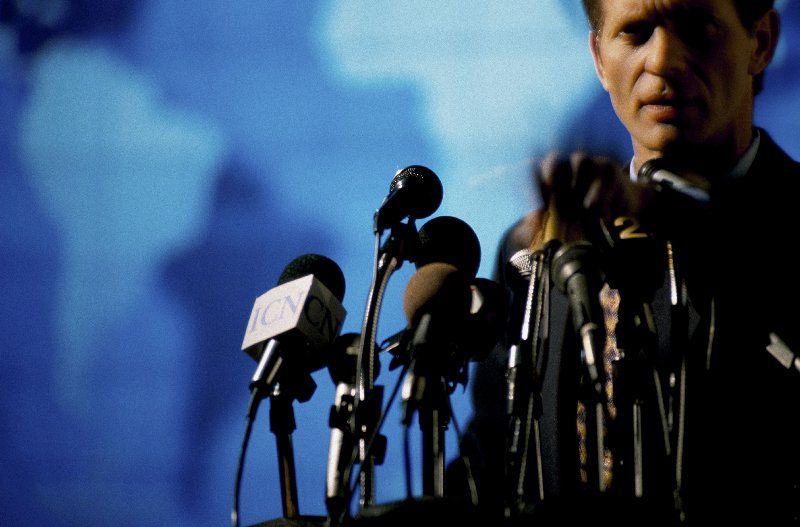Enthuse them or Lose them. 4 key tips for more powerful presentations

I was at a women entrepreneurs luncheon when I notice a striking difference between the delivery styles of two speakers. One was an award recipient, the other our keynote speaker. The award recipient spoke from behind the lectern, her hands glued to its sides, her head buried in her notes. When she did come up for air her eyes scanned the room in a trance like state, never focusing on anyone or anything. You knew that at that moment she would rather be standing barefoot on a bonfire. It made her speech uncomfortable to watch.
Fast forward to our keynote speaker. From the moment she appeared we knew her presentation would be different. Susan, as I’ll call her, leaped onto the stage like a race horse bursting from the gate. She smiled from ear to ear, saying hello to people as she made her way to the center of the stage. Standing behind a lectern was never an option.
Susan was a successful financial executive and budding author who had come to share her tricks of the trade. She could have regaled the audience with a list of accolades and achievements, but she didn’t. Instead, she delivered a genuine and commanding presentation that didn’t include reams of notes. She told relevant stories and shared real-life examples of successful sales strategies she had developed. Her hands moved freely as she spoke. She varied her tone and pitch and actually looked at people as if engaged in conversation. Susan had the rapt attention of every business woman in the room, and she was rewarded with a standing ovation.
Regardless of whether you’re a c-level executive, budding entrepreneur or designated company spokesperson, the one leadership trait that trumps everything else is strong communication skills. Fail to connect with an audience and your words are wasted. Was Susan born a great speaker? Likely not. Becoming a great speaker is more often a matter of practice and persistence, not natural talent. Even one of history’s greatest orators, Sir Winston Churchill, had to work at it. Churchill had a slight stammer and a bit of a lisp when he was young. Churchill famously said, “Continuous effort - not strength or intelligence is the key to unlocking our potential.”
4 key tips for more powerful presentations
- Don’t data dump.
Yes, it’s tempting to cover your bases by cramming everything you know into a presentation, but don’t do it unless you enjoy boring and stressing out your audience. Data dumps lead to what psychologist call “Cognitive Backlog.” It occurs when speakers deliver too much information making it harder for audiences to remember key points and ideas. “If you can’t explain it simply, then you don’t know it well enough.”-Albert Einstein.
- Don’t scan the audience.
Scanning is when you try to make eye contact with as many people as possible in a short amount of time. You were probably told doing so helps you connect with an audience. Not true. Scanning leads to filler word syndrome. That’s when speakers unwittingly pepper their presentations with ums and uhs, or the words like and so. When you scan an audience your brain takes in too much information and basically crashes, cueing filler words as you try to get back on track. If there’s one irrefutable truth, it’s that you can’t deliver and receive information at the same time. Instead of scanning, try focusing on one audience member at a time for several seconds, then during a natural pause, move on to another person. Besides rooting out filler-words, extended eye-to-eye contact helps mitigate anxiety and controls pacing.
- Make the word “novelty” your mantra.
People are natural explorers. They enjoy discovering things they didn’t know they didn’t know, and speakers who find creative ways to make their presentations more memorable. Think of how you might wow your audience. It could be something as simple as a short personal story, a prop or demo. Bill Gates mastered this approach during a 2012 TED talk. Gates was speaking about the millions of people who die from Malaria every year when he unleashed a jar of (disease free) mosquitoes on his unsuspecting audience. The stunt went viral, catapulting Gates’ presentation into national news. This doesn’t mean you have to aim for news headlines, just try thinking out of the box. How can you make your message concrete?
- Don’t forget the personality.
Authenticity is the coin of the realm in public speaking. Some speakers shed their personalities like an exoskeleton and adopt personas they believe make them appear more intelligent, experienced, confident etc…when actually the opposite is true. How do you communicate with friends? Shoot for that person. In her blockbuster book Presence, Harvard social psychologist Amy Cuddy writes, “When you’re inauthentic, your verbal and non-verbal behaviors begin to misalign.” The upshot: your credibility takes a nosedive.
Connect, Communicate and Influence
Equipping clients with the skills and self-assuredness to engage the media, avoid and manage crises, deliver powerful presentations and create impactful marketing videos that engage and motivate audiences
All Rights Reserved | Pender Communications | Website designed by Hyport Digital





